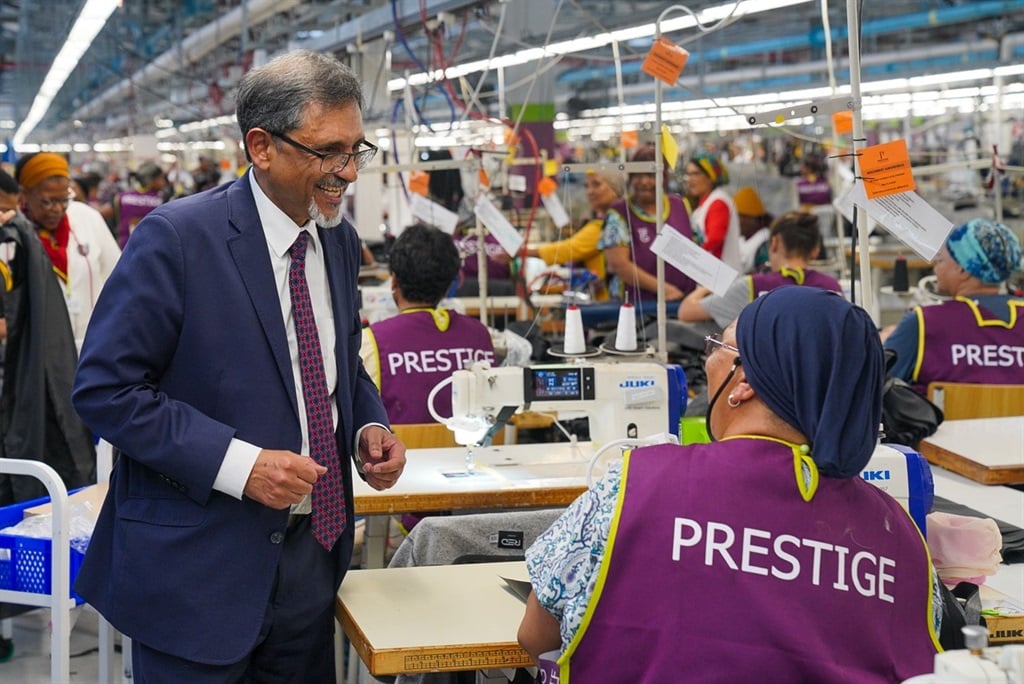Most government tax revenue collected will be used to pay the social wage bill with additional spending allocated to boost the salaries of essential workers, including teachers, nurses, doctors and police officers, over the next three years.
According to the review tabled on Wednesday, the budget strikes a careful balance between fiscal consolidation and development, with on average, 60.7% of consolidated non-interest spending continuing to go to the social wage bill, including health, education, social protection, community development and employment programmes.
Of the overall R1.73 trillion in revenue collected, R1.206 trillion, or R6 of every R10 collected, will be spent on the social wage bill in 2024-25.
The budget reverses some of the spending reductions announced in the 2023 medium-term budget policy statement by adding R57.6 billion to expenditure over the medium term, mainly to cover the costs of the 2023 public-service wage agreement.
Proposed additional spending of R18.6 billion in 2024-25, R19.2 billion in 2025-26 and R19.8 billion in 2026-27 will ensure that the salaries of teachers, nurses, doctors, police and many other public servants are catered for. Spending on social transfers will rise from R283.4 billion in 2023-24 to R331.5 billion in 2026-27.
Slow economic growth has meant that the reduction of poverty has slowed and may have reversed itself, largely because a smaller share of the working age population is in employment. The effect of these trends has been partly offset by continued growth in public spending on social grants, public employment programmes and the broader social wage, the budget review said.
Education, healthcare and law enforcement are among the most important functions that government undertakes and their provision requires considerable numbers of teachers, nurses and police officers.
In providing these services, government must make crucial policy decisions relating to the number of people employed to fulfil these functions and their remuneration: there must be an adequate number of personnel; they must be appropriately remunerated given their skills, experience and roles. The reality of budget constraints means that there is an unavoidable trade-off between the number of people employed and their conditions of service.
Over the period under review, personnel establishments in most government functions have been static at about 1.25 million people, while average remuneration rose at 7.2% per year from R147 000 in 2008-09 to R456 000 in 2021-22.
Notwithstanding these difficulties, and notwithstanding the increase in spending, it is hard to make a case for a general claim that productivity levels in the public sector have unambiguously increased in the period under review, the document said.
Upward trends in crime, for example, paint an unfavourable picture of the performance and productivity of the police and the justice system, albeit that these trends cannot be wholly ascribed to changes in the quantity or quality of policing.
However, the picture is not entirely bleak, the document noted, as educational outcomes, for example, while low compared to global norms, are higher than they were in 2010, with some exceptions, and a larger number of learners are matriculating with maths and science.
Similarly, life expectancy continued to rise at least until the onset of Covid-19 largely because the HIV/Aids programme rolled back the worst effects of that earlier pandemic.
To cover the carry-through cost of implementing the 2023 public-service wage agreement,
mainly in the education and health sectors, the 2024 budget also allocates an additional
R105.5 billion over the next three years to the provinces.
The provision of additional funds to cushion these wage bill pressures has released resources for capital investment and goods and services. An amount of R3.9 billion, previously added to the provincial equitable share for wage bill costs, has been shifted to conditional grants in the education and health sectors. In addition, reductions that were previously made to several grants have been reversed.
According to the document, the finance committee re-emphasised the importance of factoring in the real costs of the public sector wage bill in the budget and for departments to implement controls on payroll systems to ensure that executive authorities operate within their budgets when creating and filling vacant posts.
Factoring in real costs to the budget as stakeholders have on an annual basis raised, should be the preferred approach going forward, the review said.
It noted that, during a public service labour summit in 2022, the government had agreed with unions that the wage negotiation cycle needed to be aligned with the budget process and that, ideally, wage negotiations should conclude before the fin












